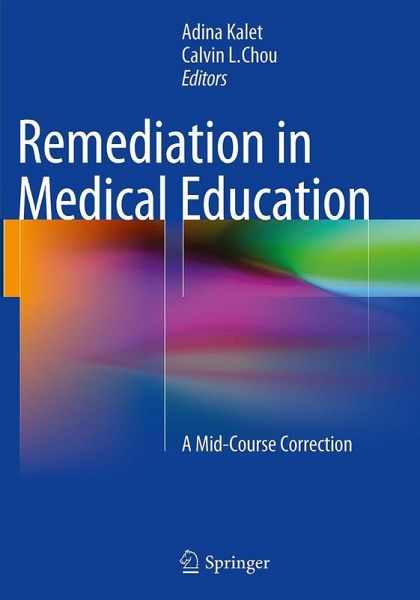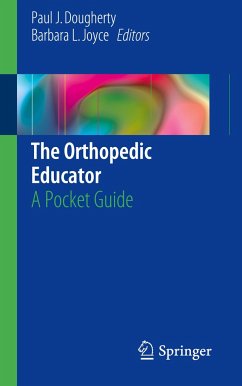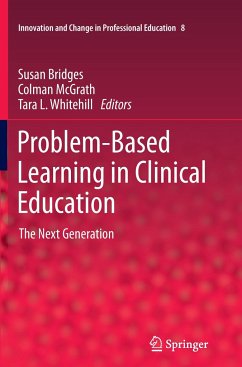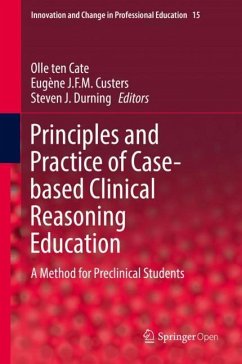
Remediation in Medical Education
A Mid-Course Correction
Herausgegeben: Kalet, Adina; Chou, Calvin L.
Versandkostenfrei!
Versandfertig in 6-10 Tagen
46,99 €
inkl. MwSt.

PAYBACK Punkte
23 °P sammeln!
Remediation in medical education is the act of facilitating a correction for trainees who started out on the journey toward becoming excellent physicians but have moved off course. This book offers an evidence-based and practical approach to the identification and remediation of medical trainees who are unable to perform to standards. As assessment of clinical competence and professionalism has become more sophisticated and ubiquitous, medical educators increasingly face the challenge of implementing effective and respectful means to work with trainees who do not yet meet expectations of the p...
Remediation in medical education is the act of facilitating a correction for trainees who started out on the journey toward becoming excellent physicians but have moved off course. This book offers an evidence-based and practical approach to the identification and remediation of medical trainees who are unable to perform to standards. As assessment of clinical competence and professionalism has become more sophisticated and ubiquitous, medical educators increasingly face the challenge of implementing effective and respectful means to work with trainees who do not yet meet expectations of the profession and society.
Remediation in Medical Education: A Mid-Course Correction describes practical stepwise approaches to remediate struggling learners in fundamental medical competencies; discusses methods used to define competencies and the science underlying the fundamental shift in the delivery and assessment of medical education; explores themes that provide context for remediation, including professional identity formation and moral reasoning, verbal and nonverbal learning disabilities, attention deficit disorders in high-functioning individuals, diversity, and educational and psychiatric topics; and reviews system issues involved in remediation, including policy and leadership challenges and faculty development.
Remediation in Medical Education: A Mid-Course Correction describes practical stepwise approaches to remediate struggling learners in fundamental medical competencies; discusses methods used to define competencies and the science underlying the fundamental shift in the delivery and assessment of medical education; explores themes that provide context for remediation, including professional identity formation and moral reasoning, verbal and nonverbal learning disabilities, attention deficit disorders in high-functioning individuals, diversity, and educational and psychiatric topics; and reviews system issues involved in remediation, including policy and leadership challenges and faculty development.












